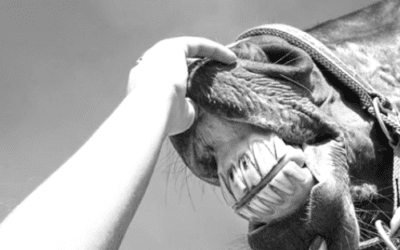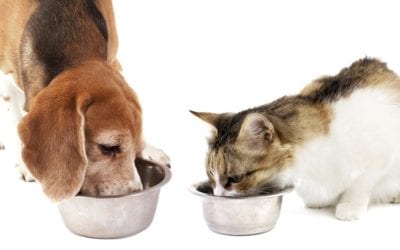Blog
Search Our Blogs
Nutrition Myths Busted
MYTH: Meat by-products are inferior ingredients, and they are bad for my pet. FACT: When you read the description of meat versus meat by-product, neither one sounds too appealing! “Meat by-products” are defined as non-rendered clean parts of the carcass, which may...
What is Laminitis? And How is it Caused? How is it Treated?
The word laminitis means inflammation of the lamina. A common term for laminitis is ‘founder’. When laminitis occurs, those finger-like projections of the two laminar layers become inflamed and their connection is weakened. When severe enough, the connections will begin to separate, and we get downward rotation or sinking of the coffin bone.
Updates on Deworming in Horses
Deworming is an important aspect of the equine health management plan. The practice of deworming involves administering an anti-parasitic drug to a horse, which will kill parasites within the horse, and clear the parasites from the horses’ body. This is important for maintaining the horses’ health, since internal parasites can cause problems such as weight loss, lethargy, colic symptoms, diarrhea, distended abdomen, and general poor condition.
Vesicular Stomatitis: What You Need to Know About Export to U.S. & Import to Canada
Vesicular Stomatitis has not been a concern here in Canada since 1949, however recently there has been some confirmed cases in the U.S. and with many of our clients going to shows in the U.S. we wanted to share this news. By sharing this news we hope to prevent...
Food for Thought, and Achy Breaky Hearts. Are Grain-Free Diets Causing Heart Failure?
If you belong to any pet-related social media groups, participate in pet-health forums, or simply have a Facebook account, you may have come across recent discussions regarding Grain-Free Diets and Dilated Cardiomyopathy (DCM). This is a hot topic amongst pet owners and veterinarians alike, and with good reason.
Canine Cranial Cruciate Ligament Tears
The most common orthopedic injury in the dog is the rupture of the cranial cruciate ligament. The cranial cruciate ligament is a ligament found in the stifle (the equivalent joint to a human’s knee), and is one of the ligaments that attach the tibia bone to the femur...
What Happens During an Equine Dental?
Equine dental health is a major aspect of horse health and it is important to understand what problems can arise in a horses’ dentition, and what can be done about it. Have you ever wondered what the veterinarian is up to when they perform an equine dental?...
Equine Lyme Disease
Equine Lyme disease is caused by infection of a horse with the spirochete bacteria Borrelia burgdorferi. B. burgdorferi is spread to horses by ticks that are infected with the bacteria, transmitting the bacteria through their saliva when they bite a horse. The most...
What Every Pet Owner Should Know About Food Allergies
Here at the clinic, we see A LOT of pets with allergies. Generally, allergies are divided into two main triggers: Food and Environmental We start to think about food allergies when we see pets that are itchy, have frequent skin or ear infections, sensitive stomach....









